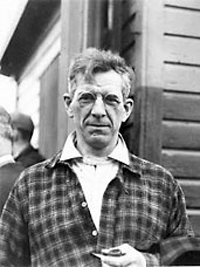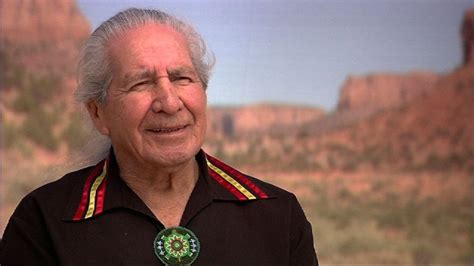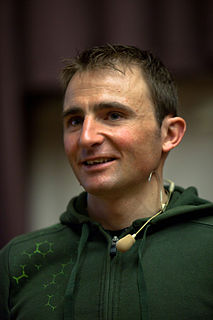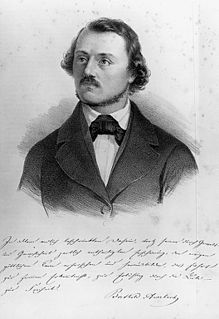A Quote by Benton MacKaye
For we need this thing wilderness far more than it needs us. Civilizations (like glaciers) come and go, but the mountain and its forest continue the course of creation's destiny. And in this we mere humans can take part-by fitting our civilization to the mountain.
Related Quotes
I do not see a delegation for the four-footed. I see no seat for the eagles. We forget and we consider ourselves superior, but we are after all a mere part of the Creation. And we must continue to understand where we are. And we stand between the mountain and the ant, somewhere and there only, as part of the Creation.
It is because you have the typical American habit of seeing everything as a test. You see the mountain as your enemy and you set out to defeat it. So, naturally, the mountain fights back and it is stronger than you are. We do not see the mountain as our enemy to be conquered. The purpose of our climb is to become one with the mountain and so it lifts us up and carries us along.
The reason to preserve wilderness is that we need it. We need wilderness of all kinds, large and small, public and private. Wee need to go now and again into places where our work is disallowed, where our hopes and plans have no standing. We need to come into the presence of the unqualified and mysterious formality of Creation.
...when the words pour out of you just right, you understand that these sentences are all part of a river flowing out of your own distant, hidden ranges, and all words become the dissolving snow that feeds your mountain streams forever. The language locks itself in the icy slopes of our own high passes, and it is up to us, the writers, to melt the glaciers within us. When these glaciers break off, we get to call them novels, the changelings of our burning spirits, our life's work.
I know truth is more like a mountain that has to be scaled. The peak of the mountain pierces the clouds and can only rarely be seen, and has never been reached. And what you see of it, moreover, depends upon the flank of the mountain you stand upon, and how exhausted getting even so far has made you. Virtue lies in looking upwards, toiling upwards, and sometimes joyously leaping from one precarious crag of fact and feeling to the next.
You see, if the height of the mercury [barometer] column is less on the top of a mountain than at the foot of it (as I have many reasons for believing, although everyone who has so far written about it is of the contrary opinion), it follows that the weight of the air must be the sole cause of the phenomenon, and not that abhorrence of a vacuum, since it is obvious that at the foot of the mountain there is more air to have weight than at the summit, and we cannot possibly say that the air at the foot of the mountain has a greater aversion to empty space than at the top.
The mountains are fountains of men as well as of rivers, of glaciers, of fertile soil. The great poets, philosophers, prophets, able men whose thoughts and deeds have moved the world, have come down from the mountains - mountain dwellers who have grown strong there with the forest trees in Nature's workshops.
[Non-performing songwriters] climb the mountain the first time, take their successes in stride, and when they tumble down the mountain, they just consider the tumble part of their profession and don't even waste time mourning their slump. They continue to write, make new connections, and move forward toward a new round of success.
In our culture of constant access and nonstop media, nothing feels more like a curse from God than time in the wilderness. To be obscure, to be off the beaten path, to be in the wilderness feels like abandonment. It seems more like exile than a vacation. To be so far off of everyone’s radar that the world might forget about us for a while? That’s almost akin to death…[But] far from being punishment, judgment, or a curse, the wilderness is a gift. It’s where we can experience the primal delight of being fully known and delighted in by God.
Sit, then, as if you were a mountain, with all the unshakeable, steadfast majesty of a mountain. A mountain is completely natural and at ease with itself, however strong the winds that try to bother it, however thick the dark clouds that swirl around its peak. Sitting like a mountain, let your mind rise and fly and soar

































